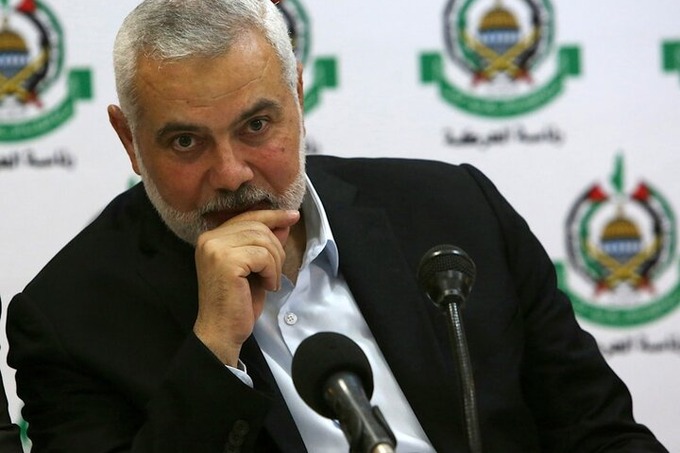Hamas leader Ismail Haniyeh was assassinated early Wednesday morning, July 31 in Iran. The incident, confirmed by both the Palestinian militant group Hamas and Iranian authorities, has led to threats of retaliation against Israel, further destabilizing a region already embroiled in conflicts in Gaza and Lebanon, Reuters informs.

Details of the Assassination
Haniyeh's assassination occurred just hours after he attended the inauguration ceremony for Iran's new president. The Iranian Revolutionary Guards confirmed Haniyeh's death and announced an investigation into the incident. Haniyeh, who had been primarily based in Qatar, played a crucial role in Hamas's international diplomacy efforts, especially amid the ongoing war in Gaza which was ignited by a Hamas-led attack on Israel on October 7.
Reactions and Implications
The assassination has prompted strong reactions from various parties. Hamas's armed wing declared that Haniyeh's killing would "take the battle to new dimensions and have major repercussions." Iran has announced three days of national mourning and has vowed to retaliate. Iran's Supreme Leader Ali Khamenei stated that Israel would face "harsh punishment" for the assassination, which occurred in Tehran.
The Israeli government has not commented on the incident, and the Israeli military has stated that it is assessing the situation without issuing any new security guidelines for civilians. Israeli Prime Minister Benjamin Netanyahu is expected to meet with security officials for consultations.
International Response
The assassination has drawn international attention. U.S. Secretary of State Antony Blinken, during an event in Singapore, refrained from speculating on the incident's impact but emphasized the importance of a ceasefire in Gaza to prevent regional escalation. Blinken also clarified that the U.S. was not aware of or involved in Haniyeh's killing.
The assassination follows closely on the heels of Israel's claim to have killed a senior Hezbollah commander responsible for a deadly strike in the Israeli-occupied Golan Heights. This development further complicates the prospects for any imminent ceasefire in the 10-month-old Gaza war.
Broader Context
Hamas official Sami Abu Zuhri condemned the assassination as a grave escalation aimed at breaking the group's will. The ongoing war, which began with a devastating Hamas-led attack on Israeli communities, has resulted in significant casualties and a humanitarian crisis in Gaza.
Haniyeh, who had been a prominent figure in Hamas since his appointment in 2017, had moved between Turkey and Qatar to escape travel restrictions in Gaza and to facilitate negotiations. His death follows the assassination of his deputy, Saleh Al-Arouri, by Israel in January.
Impact on Ceasefire Talks
The assassination is expected to impact the ongoing ceasefire negotiations brokered by Egypt and Qatar. Qatar's Prime Minister Sheikh Mohammed bin Abdulrahman Al Thani condemned the killing, questioning how mediation could succeed when one party assassinates the negotiator from the other side. Egypt also criticized the assassination, citing a lack of political will from Israel to calm tensions.
Comments (0)